Nursing Leadership: Exploring Styles, Skills, and Clinical Environment
VerifiedAdded on 2022/09/01
|11
|568
|20
Essay
AI Summary
This essay explores the multifaceted nature of nursing leadership in today's complex healthcare systems, emphasizing the need for effective leadership to address rising healthcare costs and ensure optimal patient outcomes. It highlights the importance of support, direction, coordination, collaboration, and communication in nursing leadership, along with essential skills like valuing others and fostering a clear vision. The essay discusses the relationship between leadership experience and clinical skills, referencing self-efficacy theory and underscoring the significance of nursing leadership in enhancing production efficiency, cost-effectiveness, patient safety, and quality of care. It also identifies democratic leadership as a preferred style, emphasizing teamwork and direct patient care. The essay concludes by reiterating the critical role of nursing leadership in clinical environments and the importance of vision and communication skills. Access this and more solved assignments on Desklib, your go-to platform for study resources.
1 out of 11
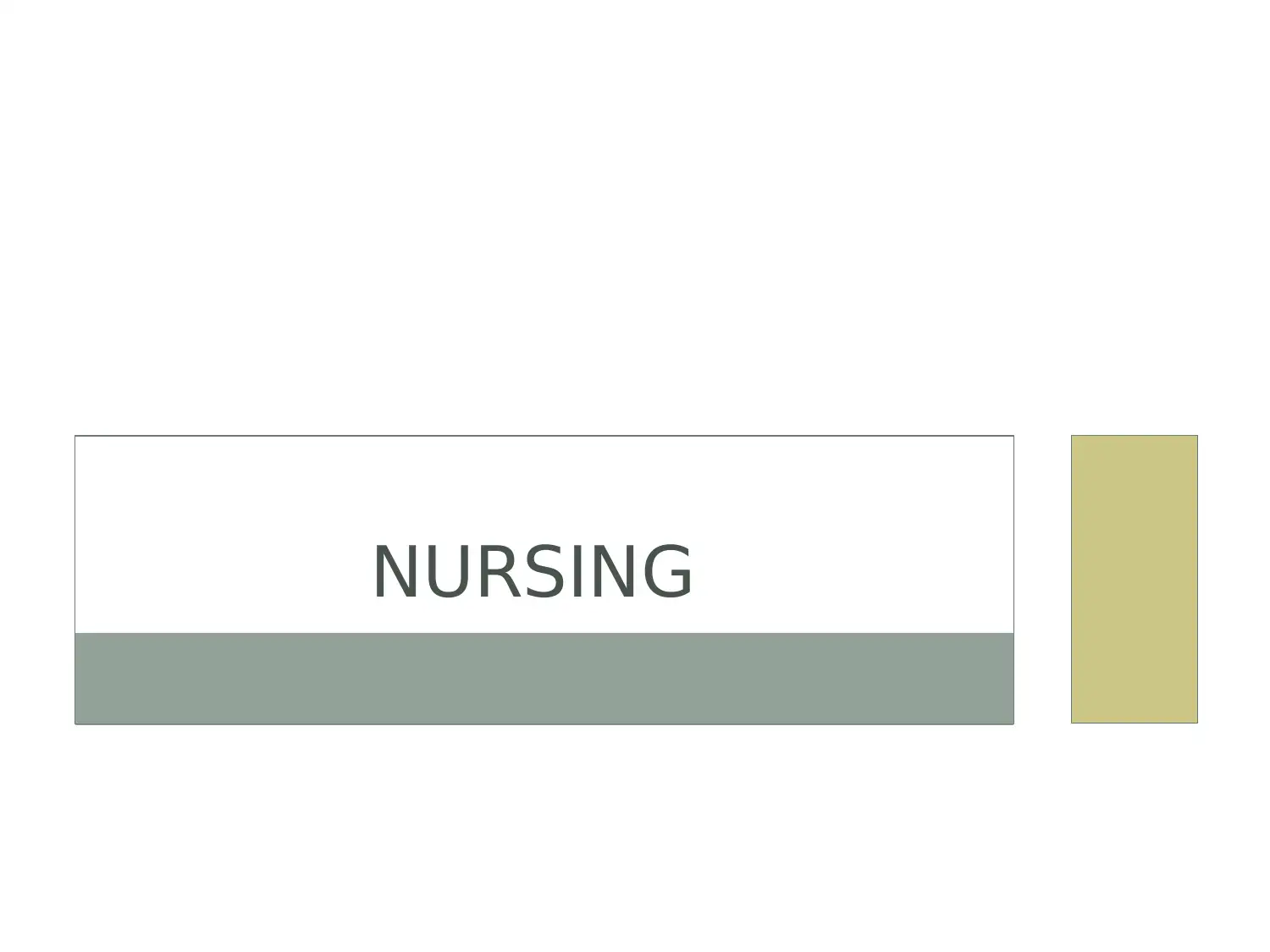
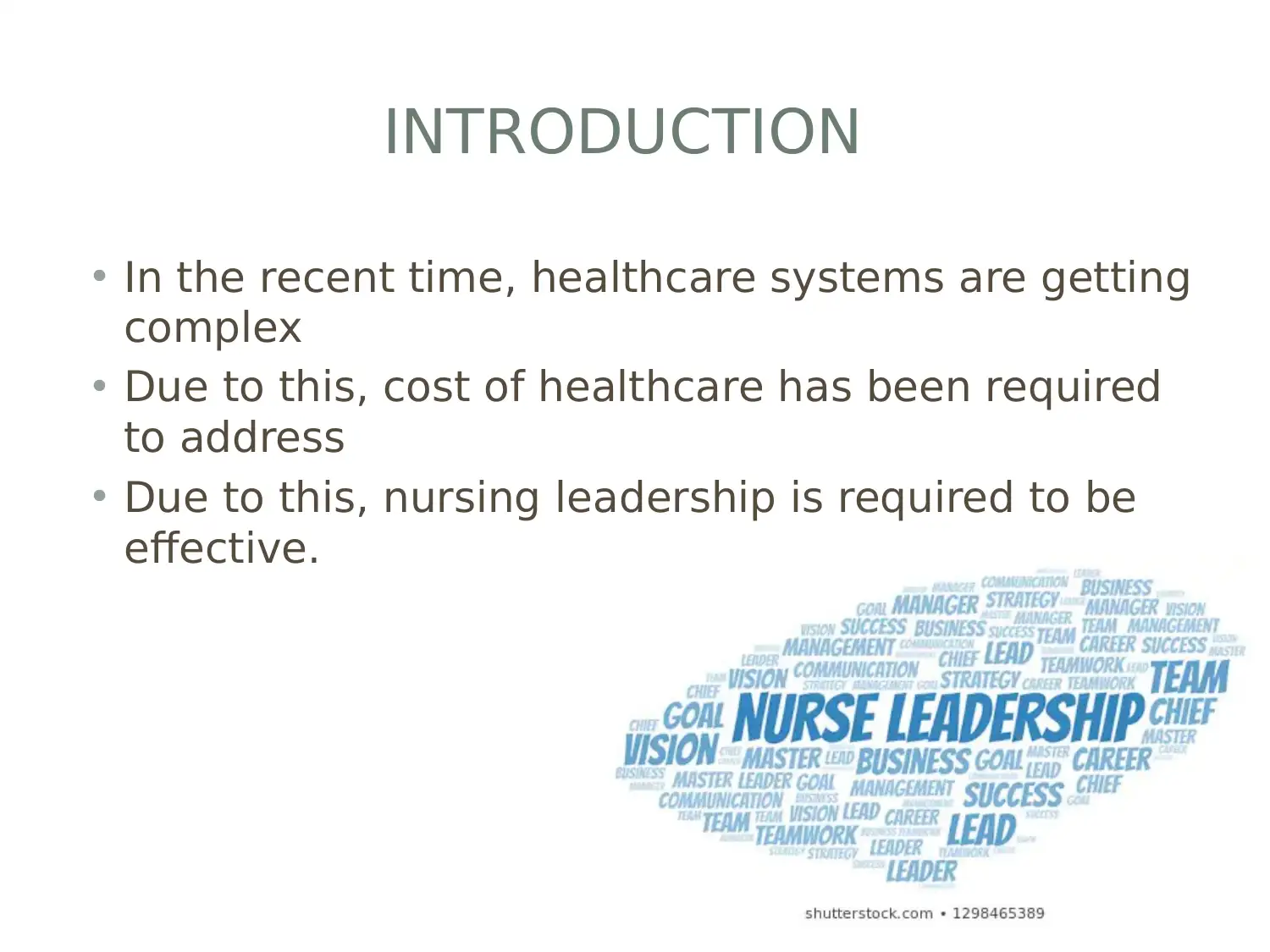
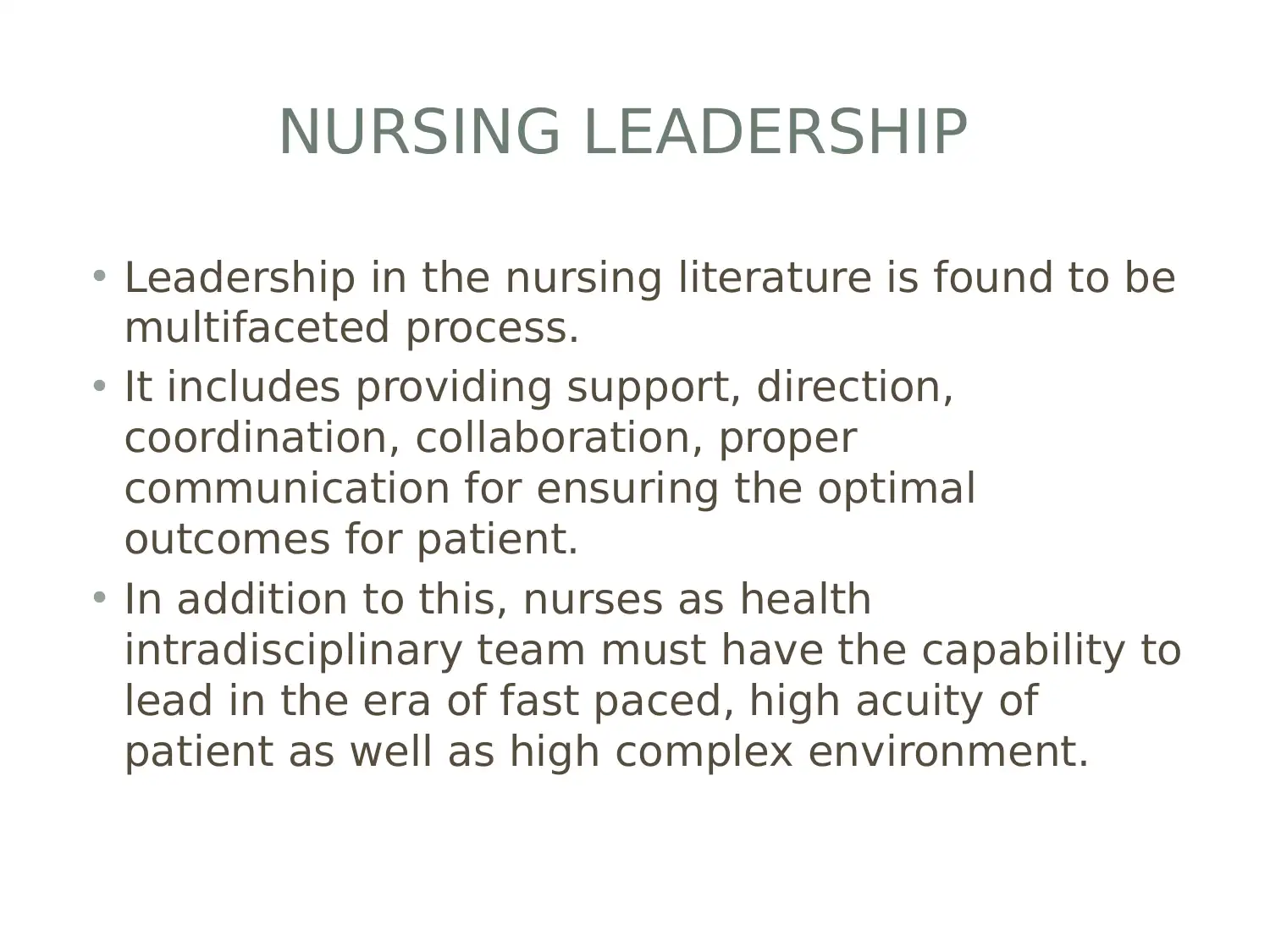


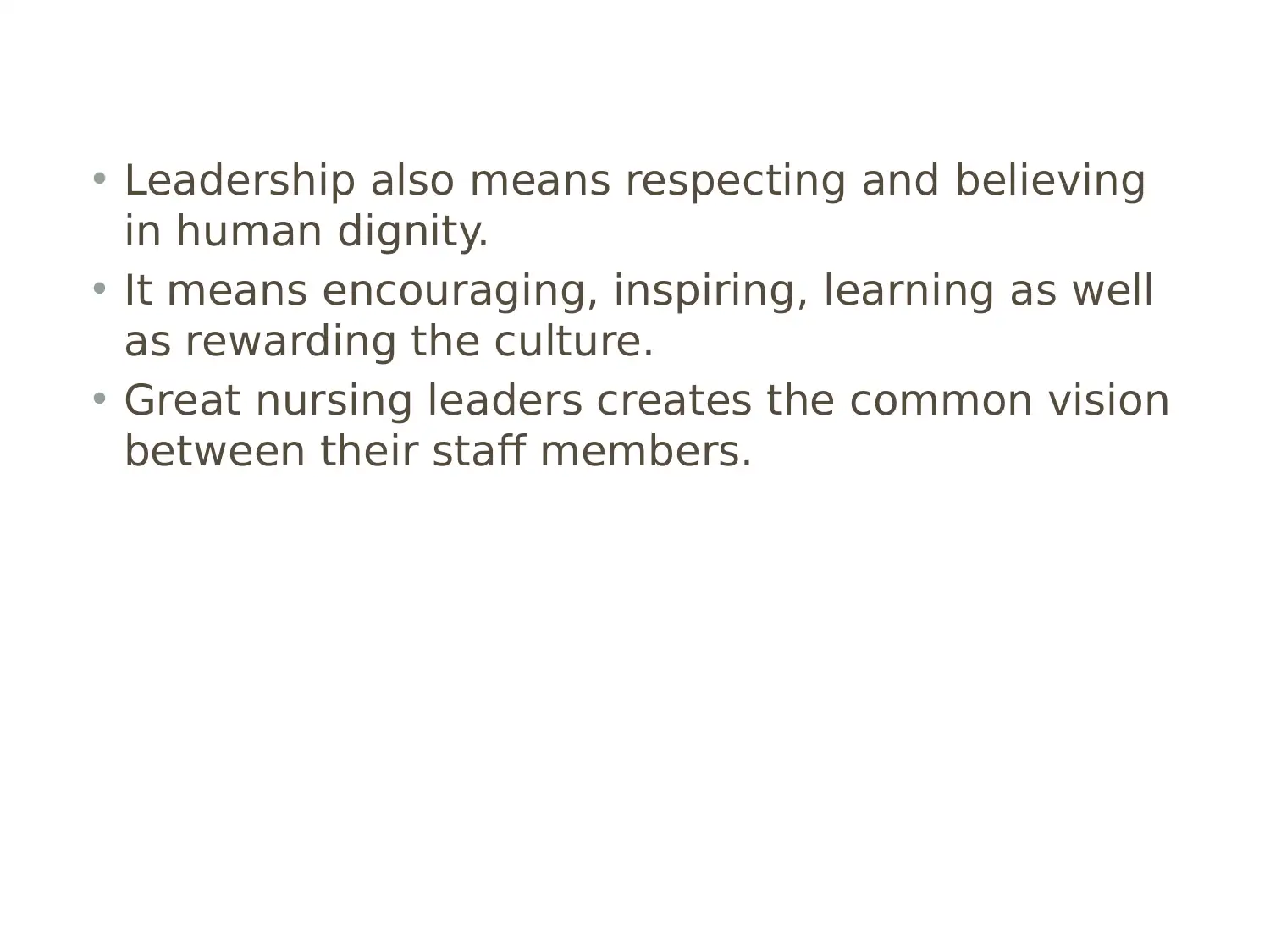
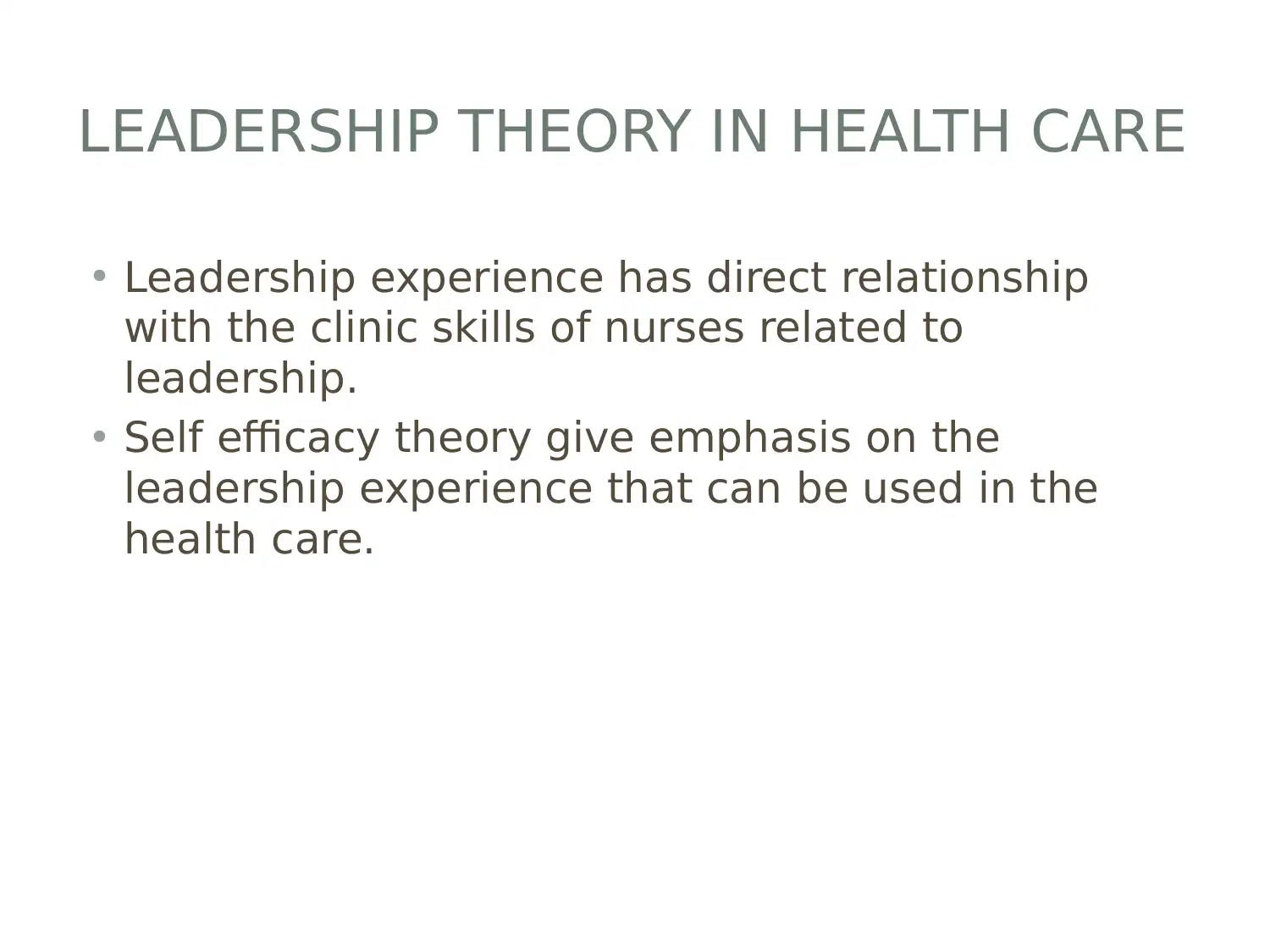
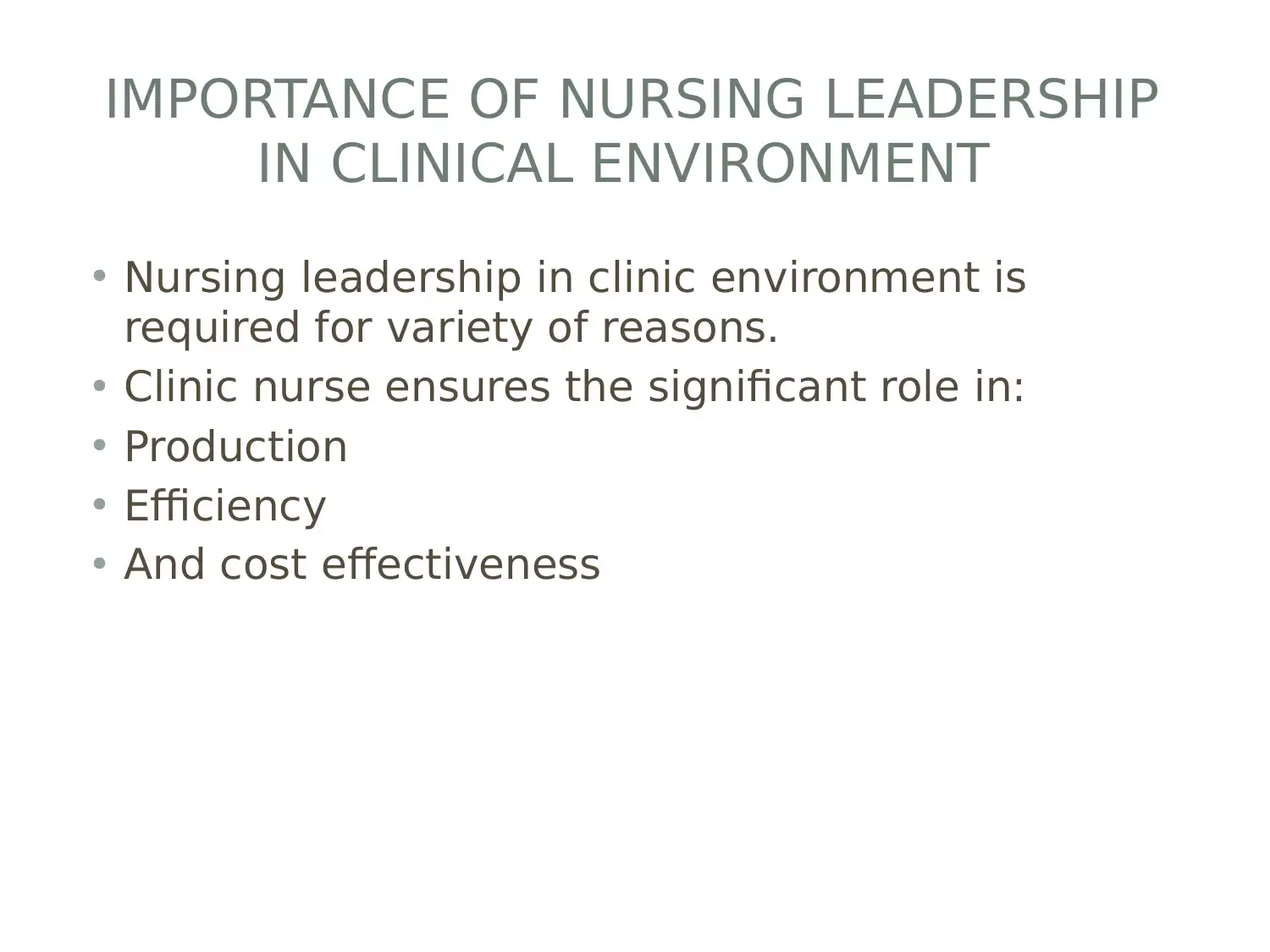
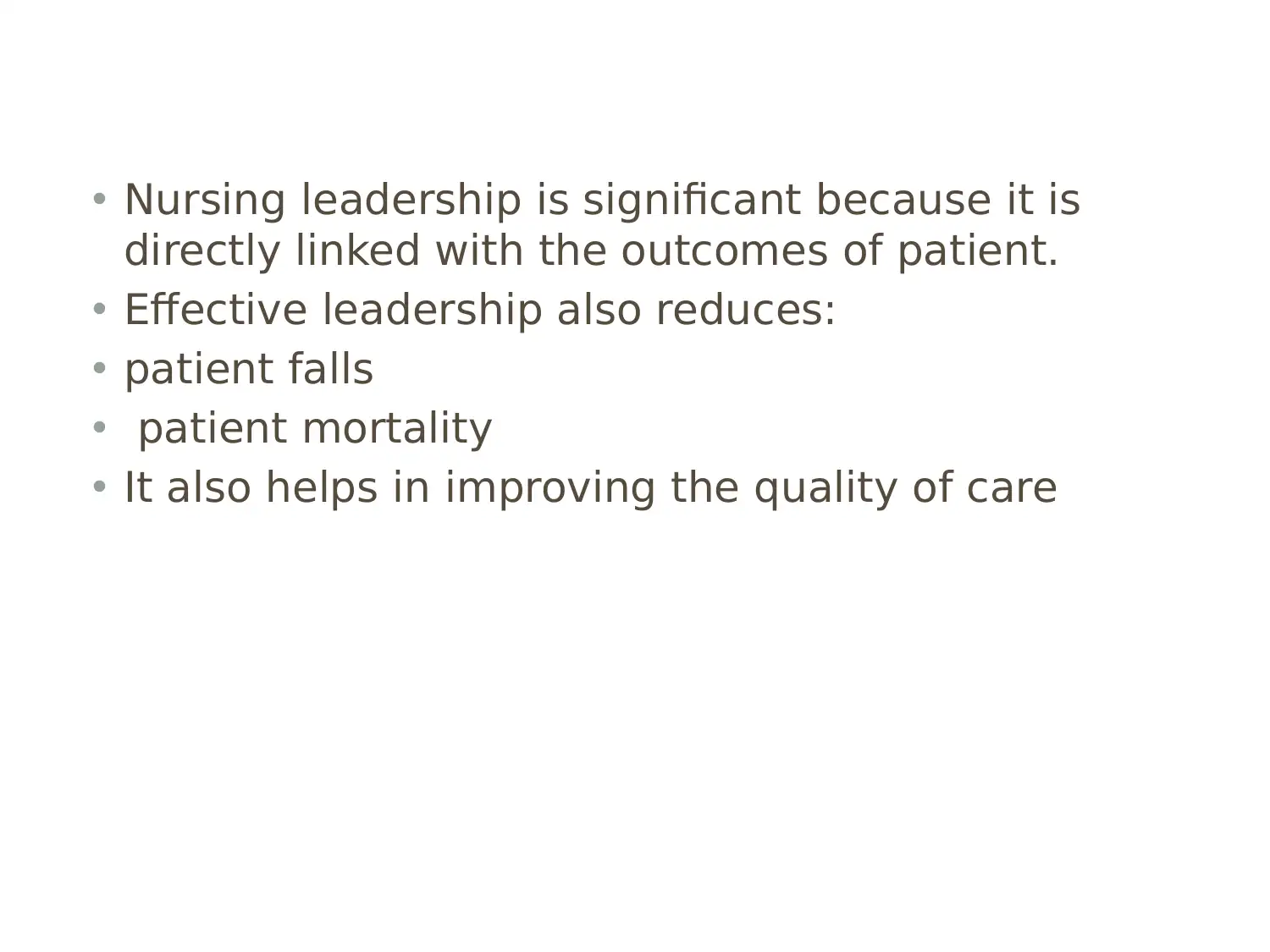
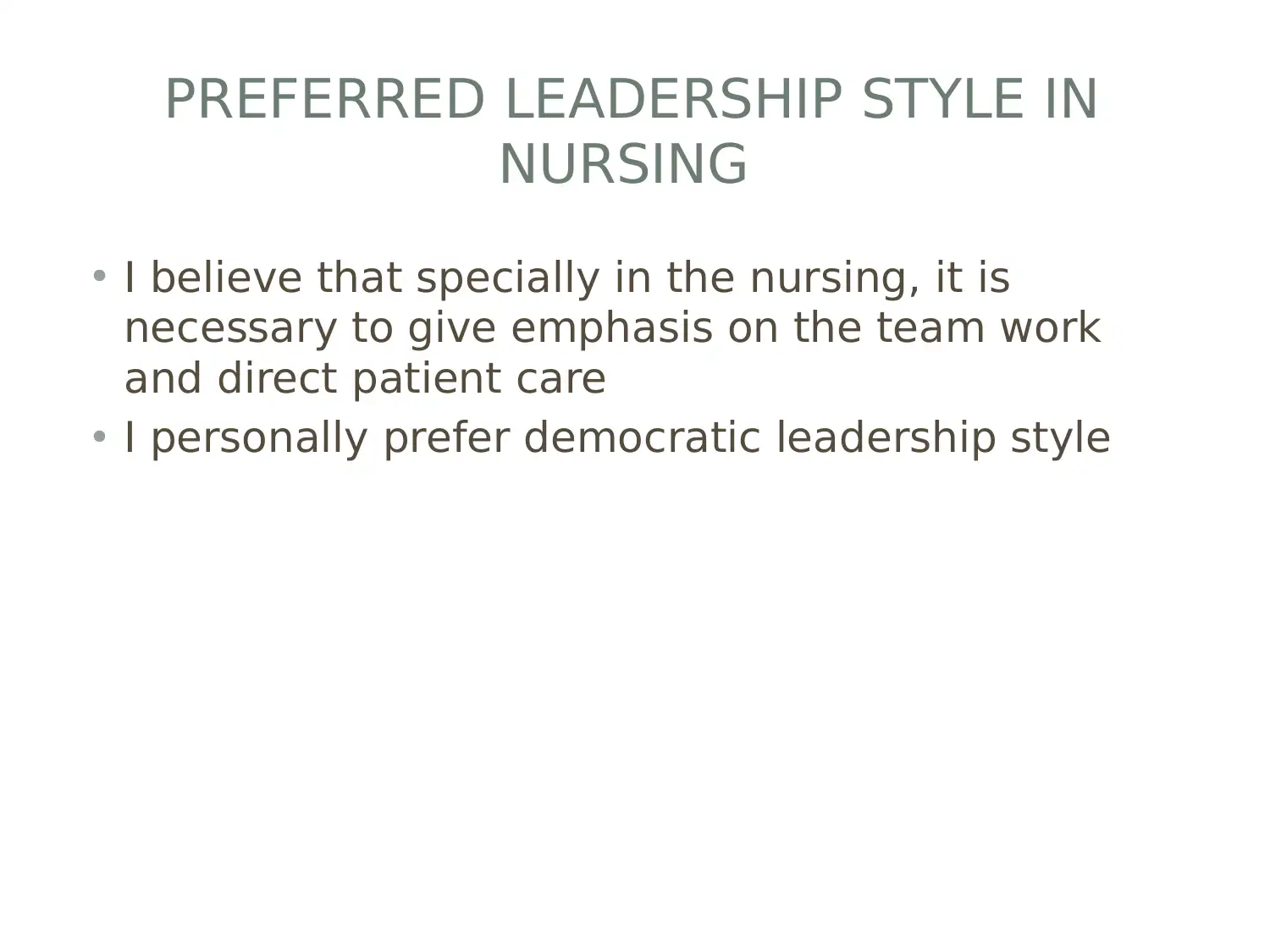
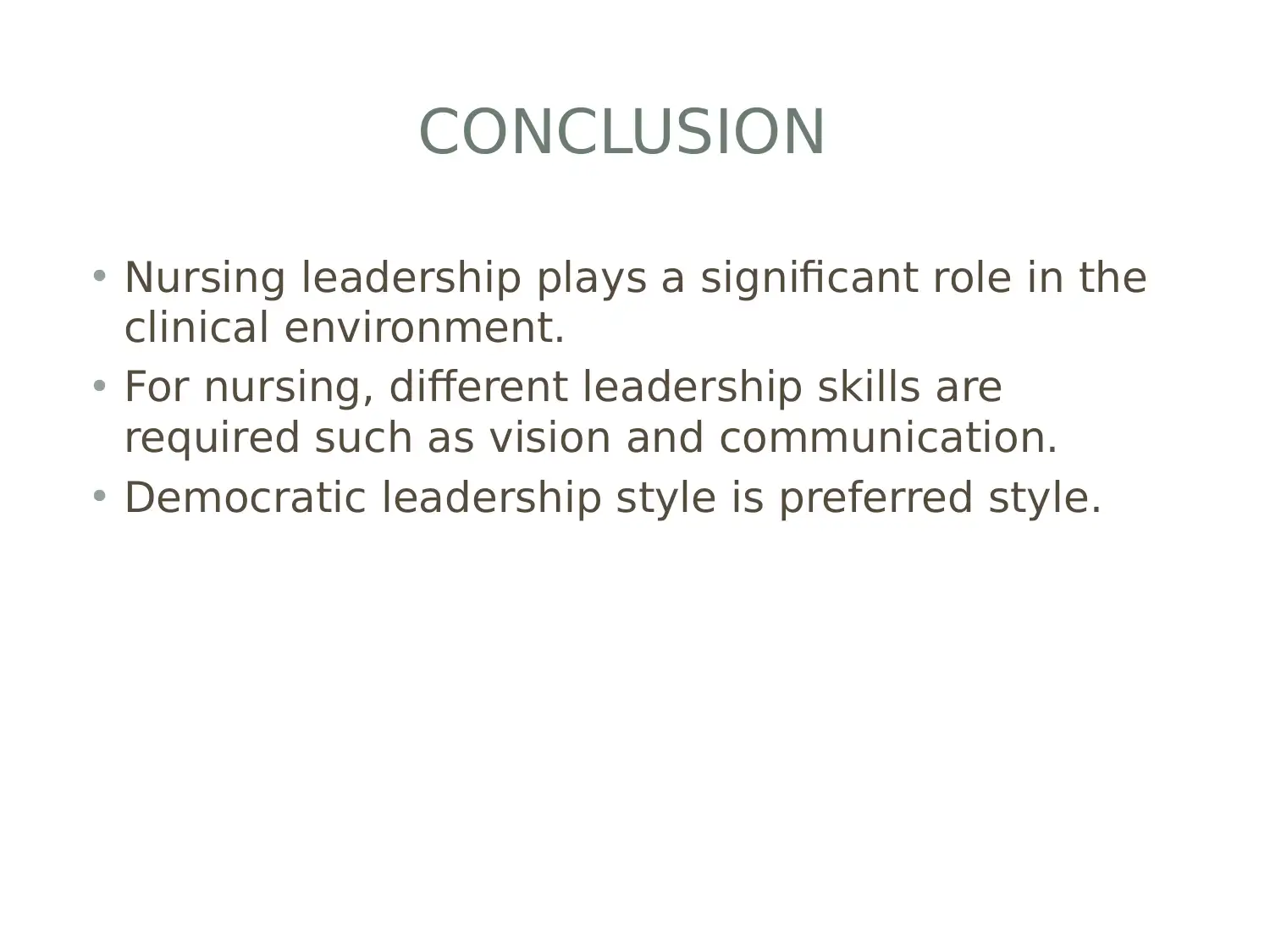
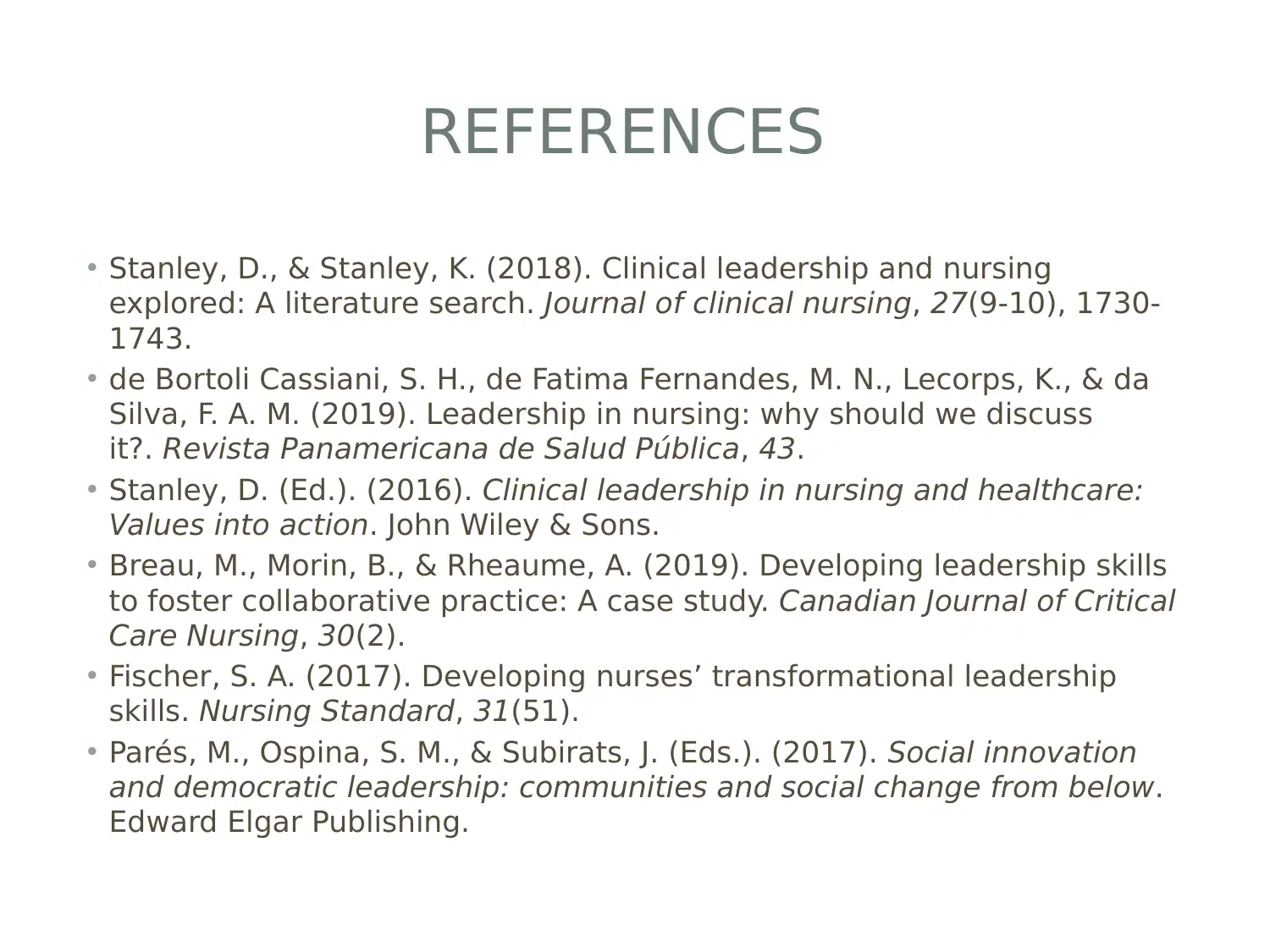





![[object Object]](/_next/static/media/star-bottom.7253800d.svg)